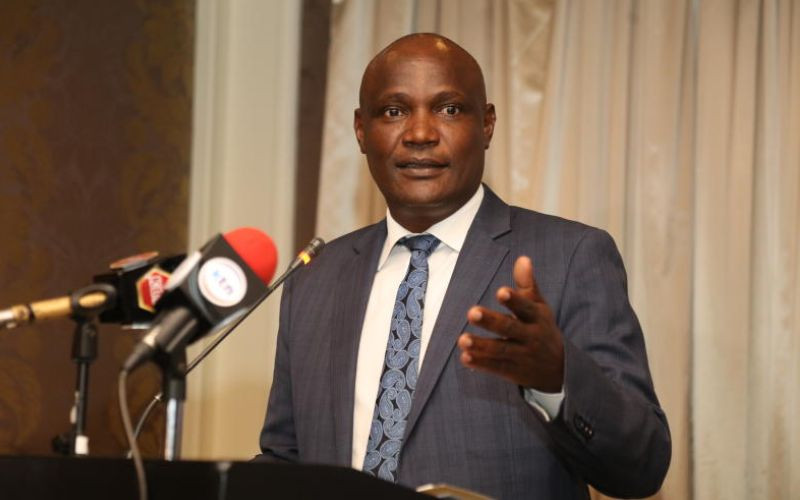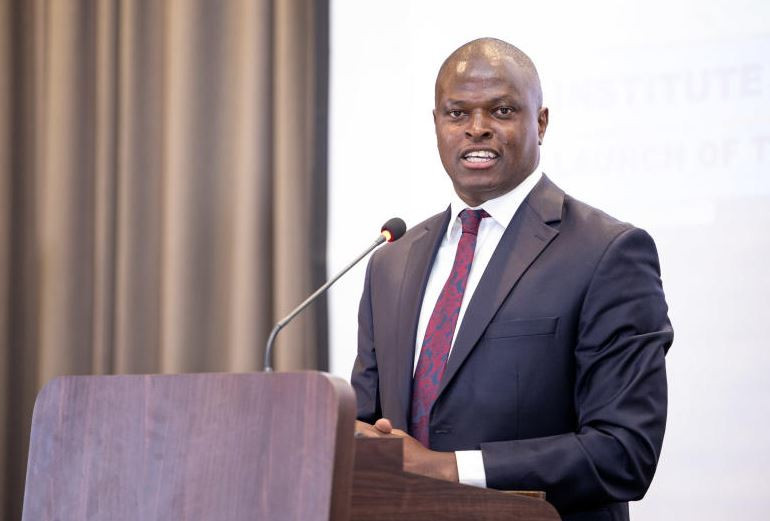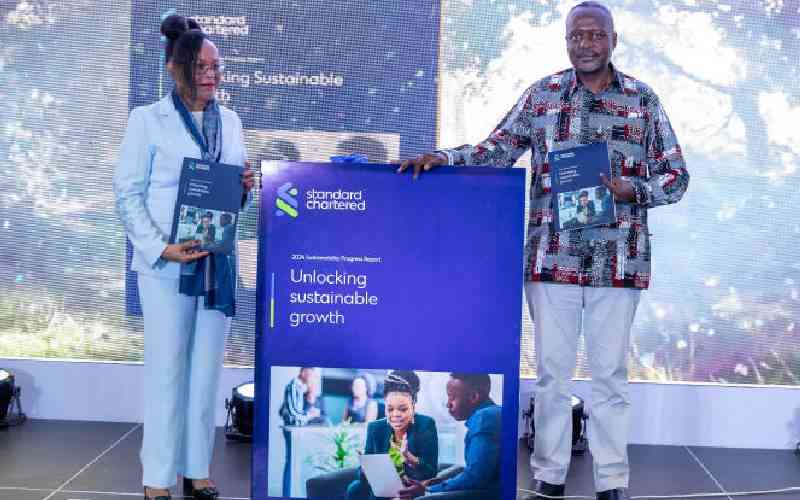
John Mbadi Cabinet Secretary the National Treasury and Economic Planning. [Wilberforce Okwiri, Standard]
Treasury Cabinet Secretary John Mbadi has defended the government’s decision to securitise the fuel levy.
Mbadi, on Wednesday said the move is aimed at unlocking stalled infrastructure projects and settling pending payments to contractors.
The Treasury CS said the additional Sh7 levy, added to the existing Sh18 road maintenance levy will support development goals, noting that the original Sh18 remains untouched.
Mbadi was responding to criticism from Kiharu MP Ndindi Nyoro, who accused the government of driving up fuel prices through excessive taxation and what he described as opaque borrowing practices.
“There is nothing secret about securitisation. Everybody knows it. Where does he live if he doesn’t know we were securitising this money? We will continue doing it, and we have no apologies to make,” the CS said.
Nyoro, the former chair of the Budget and Appropriations Committee on Tuesday dismissed the Ministry of Energy’s explanation that rising global oil prices were behind the spike in pump prices.
“Global oil prices peaked last year, not this year. It is clear that the government is using false narratives to justify high pump prices," he argued.
He pointed to domestic taxation as the main driver of high fuel costs, stating that more than Sh80 per litre of petrol and Sh76 for other fuels goes to taxes and levies, revealing that in 2023, the government quietly introduced a Sh7 per litre levy at a time when global oil prices were falling, denying Kenyans the benefit of declining international rates.
“This borrowing is not reflected in official debt records, and Parliament was never consulted; this raises serious concerns about transparency, legality, and the long-term sustainability of public finances,” said Nyoro.
Mbadi countered that through the fuel levy securitisation, the government has already raised more than Sh60 billion, allowing many contractors to resume work. He said the plan targets Sh175 billion in total, which, when combined with the annual infrastructure allocation of Sh57 billion, could clear all pending contractor certificates within three years.
“In the current fiscal year, if we use even half of that and add it to our regular allocation, we will have about Sh120 billion, enough to settle outstanding bills. If we do the same next year, all ongoing road works will be completed.”
Securitisation is a financial process that transforms illiquid assets or revenue streams into investable securities, enabling governments or institutions to raise capital against future income.

